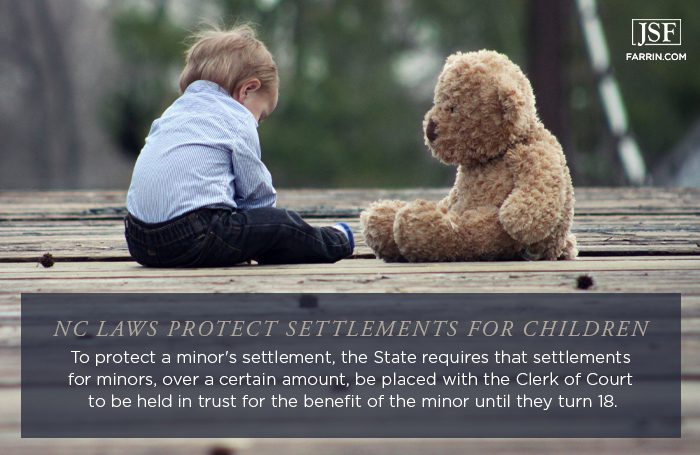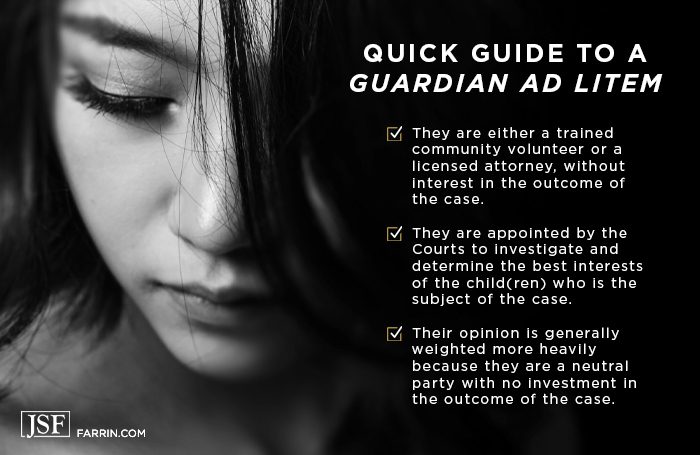At our firm, many of us are parents. We understand that your child being hurt in an accident is the worst thing that can happen to you.
Since cases involving minors are often more complicated and so much is at stake, we recommend all parents reach out to an experienced personal injury attorney for advice.
But many parents have initially been afraid of involving an attorney because they believe their child’s absentee mom or deadbeat dad might suddenly appear once they hear their child might be entitled to a settlement. Those fears are often well-founded, but the right attorney can help try to make sure funds go where they’re really needed.
Two Circumstances Which Can Immediately Exclude the Other Parent
We’ve seen our share of cases where the parent handling the case does not want the other parent involved. Oftentimes it takes some compromise, but there are two legal scenarios we’ve utilized to keep the other parent out of the equation:
- A parent must be on the birth certificate in order to be involved in the case. If the other parent is not on that document, then he or she cannot be involved – period. That is why we would advise you to give a copy of the birth certificate to your attorney as soon as possible.
- A Court document granting the signing parent sole custody. This means that a judge previously signed an order after a hearing, and determined that the legal and physical custody of the minor belongs solely to one parent. A copy of this documentation should also be given immediately to your attorney.
If neither situation exists, then the insurance company can legally require the other parent to be involved or sign off prior to completion of the settlement. But there are ways to reduce the risk that a parent will affect a minor’s personal injury claim.
Keeping the Other Parent Out of Decisions – Guardian ad Litem
If you can’t provide legal documentation of custody, but still don’t want participation from the other parent, you may be able to ask your attorney to hire a “Guardian ad Litem.”
A Guardian ad Litem is either a trained community volunteer or, more likely, a licensed attorney, without interest in the outcome of the case. This person is appointed by the Courts to investigate and determine the best interests of any child who is the subject of a Court case.
A Guardian ad Litem’s opinion is generally weighted more heavily because he or she is a neutral party with no investment in the outcome of the case.
This is a good option for parents who are both involved in their child’s life, but cannot agree with one another on how to proceed. In this situation, it would be best for both parents to agree that a neutral third party, i.e., a Guardian ad Litem, be appointed to handle the matter.
However in the case of an absentee parent, such as an incarcerated or transient parent, you will likely have to show documentation that the parent has generally had no interest or role in the minor child’s life.
How North Carolina Laws Protect Your Child’s Settlement
Most parents in these situations fear the other parent will try to siphon money from the minor’s settlement proceeds. Fortunately, North Carolina courts have considered this possibility.
To protect a minor’s settlement, the State requires that settlements for minors, over a certain amount, be placed with the Clerk of Court to be held in trust for the benefit of the minor until the minor turns 18 years of age. The settlement may also, if large enough, be invested and form a structured settlement with the Court’s approval. If the minor’s settlement is approved by the Court, then the minor’s portion of that settlement is placed with the Clerk of Court until age 18. At that time the minor can request that the Court release his or her settlement proceeds after showing valid identification, proof of address, and allowing the Court time to process the request.
Reimbursing You for Medical Expenses
A parent has no claim to the settlement proceeds of a minor with the exception of out of pocket medical expenses paid by that parent. A parent may request at the Court approval hearing that a judge order reimbursement to that parent by showing proof of payment of such expenses. It is ultimately the judge’s decision as to whether the parent is reimbursed and for what amount.
A parent’s claim for expenses is not a separate claim and will come directly from the minor’s portion of the settlement. Because there is no separate pot of money with which to reimburse a parent for a minor’s medical expenses, a judge will not make this decision lightly and will weigh all factors available, including, but not limited to, the minor’s injuries, age, permanent impairment, future medical needs, as well as the amount of the settlement.
Insurance Company May Use Your Situation Against You
We have seen some insurance companies try to use the fact that another parent is involved to delay settlement or settlement negotiations, especially if the insurance company is contacted by the other parent directly, or the other parent hired an attorney.
However, your attorney can try to help you overcome these obstacles in several ways, including hiring a neutral Guardian ad Litem, and/or by working directly with counsel hired by the other parent to protect the child’s best interests.
Either way, your attorney should not let an insurance company prejudice your child’s rights by delaying settlement negotiations or refusing to settle due to the involvement of another parent.
North Carolina Car Wreck Attorneys
We’re attorneys, but we’re also parents. We understand that sometimes you have to fight tooth and nail for your child’s best interests – and we’d like to do that on your behalf.
If we have to fight to keep the other parent at bay, we will pull out the tools in our legal toolkit to try to make that happen.
If you need help to try to ensure the best outcome for your child’s accident recovery and future contact us for a FREE case evaluation or give us a call at 1-866-900-7078. We’re here for you 24/7/365.
You May Also Be Interested In
My Child Was Hurt. I Missed Work. Will the Insurance Company Pay Me for Time Off?
My Child Was in a Car Accident – What Should I do?
Children Killed by Drunk Drivers – The Numbers Are Higher Than You Think





